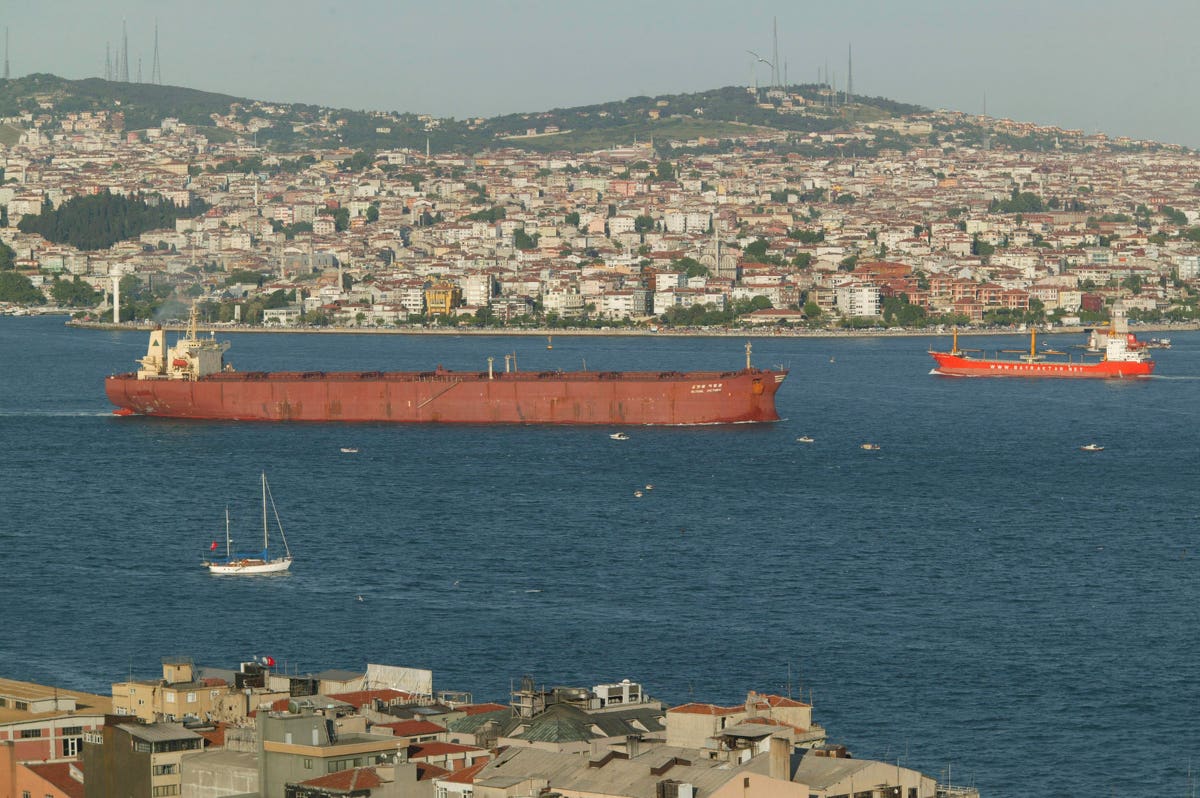Russia ups the ante to pressure the West for concessions, but now risks for an escalation of hostilities are higher too. The world should take notice.
Russia’s surprising exit from the Black Sea Grain Initiative raises the risk of a major Black Swan event that could shock the global economy. Most Black Sea war pundits are fond of raising the possibility of some sort of nuclear event – be it use of a tactical weapon or the destruction of a nuclear power plant – as the Black Swan event that is most likely to occur. But that’s not nearly as realistic a worry as a potential disruption of commercial shipping out of the Black Sea, which could have major negative repercussions on the entire global economy.
Ukraine’s ability to export grains through the Black Sea is vital to its economic health, and the disruption of its grain exports could force Ukraine or its allies to take action heretofore unseen in the conflict. Any spillover of hostilities onto the Black Sea, such as an attack on a commercial vessel carrying Russian wheat for export out of the Black Sea, would instantly disrupt global availability of wheat, oil, fertilizer, and other commodities. The loss, or at least the lack of availability of affordable Black Sea wheat, oil and fertilizer supplies would cause the prices of each to soar, potentially rocking the global economy to its core.
Specifically, Ukraine is, or was, the world’s largest exporter of sunseeds, (think sunflower seeds and sunflower oil), the world’s fifth largest wheat exporter, and usually the world’s fourth largest exporter of corn – Ukraine is most recently in third place because of the drought currently limiting Argentinian corn exports this crop year.
Russia is the the world’s largest wheat exporter, largest fertilizer exporter, and the second largest oil exporter, accounting for about 30%, 15%, and 11% of global export availability respectively for the three vital commodities.
Much of the volume of all of these commodities is shipped via Black Sea ports. Importantly, almost half of all of Russia’s crude oil exports are shipped via tankers out of the Black Sea.
As a reminder, ships leaving Black Sea ports from Russia, Ukraine, Romania, Bulgaria, Georgia, and Turkey must transit through the Bosphorus Straits, the Sea of Marmara, and the Dardanelles Straits into the Aegean and Mediterranean seas. The Sea of Marmara is entirely within the borders of Turkey and thus access to the Black Sea is ultimately controlled by Turkey via its control of both the Bosphorus and Dardanelles Straits, collectively known as the Turkish Straits. Said control is officially governed by Turkey via international agreements signed in 1936 at something called the Montreux Convention.
If this seems a bit complicated, don’t fret about not having more than a passing knowledge of history and geography; it will suffice to know that Turkey controls access to the Black Sea and that the free movement of commercial ships in and out of the Black Sea is really, really important to global trade. Any disruption of commercial shipping, be it physical (perhaps a blockade) or economic (high priced wartime insurance premiums and low availability of ships willing to enter the Black Sea causing shipping prices to skyrocket) could create a price spike in several much needed commodities. Repercussions would most certainly be felt around the globe.
The Black Swan question being asked in commodity circles right now is pretty stark: “What if whoever blew up the Nordstream Pipeline decides to attack a ship in the Black Sea to completely disrupt Russia’s ability to export commodities by sea?”
A more non conspiratorial but perfectly reasonable question might also be “What if Ukraine, with no ability to export most of its agricultural crops, decides to retaliate by mining parts of the Black Sea to prevent Russia from exporting its own crops?” or “What if Russia decides to mine Ukraine’s export ports?”
Any or all of the above could theoretically happen should the war extend from land into the sea. That wouldn’t stop shipping in and out of the Black Sea, but it would raise shipping costs dramatically, thus raising the price of commodities being shipped. Wheat and oil markets would be impacted instantly, other markets around the globe would also be impacted in a variety of ways, both negative and positive.
Right now the world is awash in readily available wheat, oil, corn, and fertilizer. Let’s hope Russia’s exit from the grain deal doesn’t portend a change in the situation any time soon, if at all.
Read the full article here





